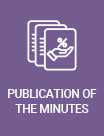The Board of Directors of Banco de la República increased the benchmark interest rate by 25 basis points
The Board of Directors of Banco de la República at today’s meeting decided to increase the benchmark interest rate by 25 bp to 5.50%. For this decision, the Board mainly took into account the following aspects:Annual consumer inflation in October stood at 5.89%, and the average of the four measures of core inflation posted at 5.11%. These results exceeded the projections of the Central Bank's technical staff and the average of the market. Measures of inflation expectations increased: those of analysts to one and two years registered 4.4% and 3.6%, respectively, while those embedded in public debt bonds to 2, 3, and 5 years are above 4.0%.
- Acceleration of inflation so far this year is mainly explained by the pass-through of nominal depreciation to consumer prices and the increase in the costs of imported raw materials, as well as by the lower dynamics in food supply.
- Pass-through of part of the devaluation of the peso to consumer prices and a strong presence of El Niño have slowed down convergence of inflation to the target, due to its direct impact on prices and inflation expectations, as well as to the probable triggering of indexation mechanisms.
- The new figures for the third quarter, particularly for retail sales, suggest a more dynamic domestic demand than expected. Net exports would have subtracted from growth. On the supply side, industrial production shows a positive trend and the indicators of shipping and production of cement suggest a favorable dynamics for construction. The monthly indicator of economic activity released by DANE (ISE) suggests a growth rate of around 4.0% in the third quarter. With this information and new data of economic activity for October, the technical staff maintained the growth forecast for 2015 between 2.4% and 3.4%, with 3.0% as the most likely figure.
- The increase in inflation expectations has considerably reduced the real policy interest rate and those of the financial system. At the same time, domestic credit growth remains above the pace of expansion of output.
- Figures for global economic activity continue to reflect a weak dynamics of external demand, below that recorded for 2014. In the United States, domestic demand grows at favorable rates, while in the euro zone it is recovering slowly. China continues slowing down, and the major Latin American economies exhibit low growth rates or output contractions.
- The probability of the FED increasing its benchmark interest rate in December rose and the long-term bond rates increased. The US dollar appreciated and the prices of major commodities declined.
- The price of oil was below the expectations of the technical staff. The fall in the terms of trade recorded throughout the year has deteriorated national income, largely explaining the higher level of the exchange rate vis-à-vis the US dollar.
In summary, inflation expectations have increased and the risk of a slowdown in domestic demand, beyond that which is consistent with the decline registered in national income, has moderated. In order to ensure the convergence of inflation to the 3.0% target, the Board of Directors decided to increase the benchmark interest rate by 25 basis points, thus continuing the tightening of the monetary policy which started last September.
The Board reiterates its commitment to the inflation target and continues to carefully monitor the behavior and projections of economic activity and inflation, as well as that of asset markets and the international situation.
Bogotá














.png)

































